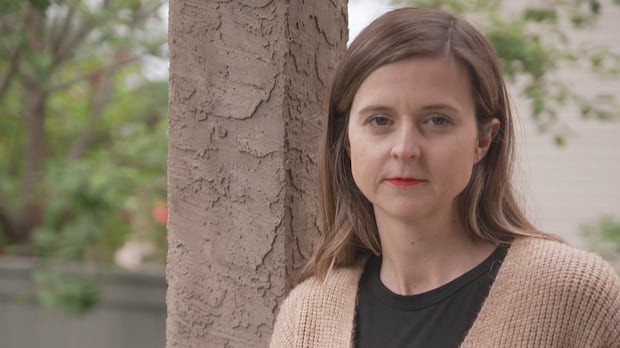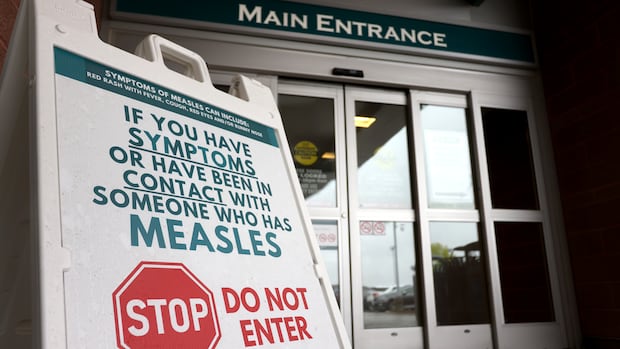ChatGPT and similar artificial intelligence tools can sometimes answer patient questions accurately, but Canadian medical researchers caution that the information needs to be carefully checked before acting on what you see.
The researchers’ advice comes as the Ontario Medical Association (OMA) hosted a media briefing this week, discussing DIY information sources — from search engines to social media to chatbots — and their impacts, as well as what patients can do instead.
It’s important to warn people now, said Dr. Valerie Primeau, a psychiatrist from North Bay who leads inpatient and community programs for mental health and addictions, because patients are increasingly turning to AI tools.
The chatbots give convincing and empathetic results — but the information might be fake.
“I have patients now that talk to ChatGPT to get advice and have a conversation,” Primeau said. “So I foresee that we will continue having this issue, and if we don’t address it now and help people navigate this, they will struggle.”
Dr. David D’Souza, a radiation oncologist in London, Ont., who leads clinical research into image-based treatments for cancer, said depending on how patients interrupt what AI tells them, they could put off conventional treatments.
“A patient came to me asking if he should wait to have his cancer that was diagnosed treated in a few years because he believes that AI will customize cancer treatments for patients,” D’Souza told reporters. “I had to convince him why he should have treatment now.”
Given that consumers will use the tools, OMA president Dr. Zainab Abdurrahman advised if a post says “doctors have been hiding this from you,” she suggests checking the websites of relevant specialist groups, such as provincial cancer care associations, to see if they back it up.
Fake ads, including AI-generated images, can also lead patients astray, warned Abdurrahman, who is also a clinical immunologist and allergist.
Lost nuance makes AI results harder to rely on
While the technology is progressing, today’s chatbots routinely answer health queries with false information that appears authoritative.
In one study, Dr. Benjamin Chin-Yee, an assistant professor in the pathology and lab medicine department at Western University and his co-authors fed nearly 5,000 summaries of medical and scientific literature into AI large language models including ChatGPT and asked for summaries.
They found three-quarters of the AI versions missed key parts of carefully guarded statements.
For example, the journal article might say a drug was only effective in a certain group of patients while the summary leaves out that key detail, said Chin-Yee, who is also a hematologist.

“The worry is that when that nuance in detail is lost, it can be misleading to practitioners who are trying to use that knowledge to impact their clinical practice.”
Chin-Yee said AI is an active area of research that is rapidly changing, with newer models that are more human-like and user-friendly, but there can be drawbacks to relying on the tools alone.
Similarly, David Chen, a medical student at the University of Toronto, compared results provided by chatbots to 200 questions about cancer from a Reddit forum to responses provided by oncologists.
“We were surprised to find that these chatbots were able to perform to near-human expert levels of competency based on our physician team’s assessment of quality, empathy and readability,” Chen said.
But the experimental results may not reflect what happens in the real world.
“Without medical oversight, it’s hard to 100 per cent trust some of these outputs of these generative technologies,” Chen said, adding concerns about privacy, security, and patient trust still haven’t been fully explored.
Artificial intelligence is expected to revolutionize health care. And at Memorial University’s Faculty of Medicine, A.I. is already being used in the treatment of patients with various brain conditions. Neuroscience professor Michelle Ploughman showed the CBC’s Carolyn Stokes around her lab at the Miller Centre and demonstrated how A.I. is changing patient care.
Don’t rely on a single chatbot
Generative AI technologies like chatbots are based on pattern-matching technologies that give the most likely output to a given question, based on whatever information it was trained on. In medicine, though, unlikely possible diagnoses can also be important and shouldn’t be ruled out.
Plus, chatbots can hallucinate — produce outputs that sound convincing but are incorrect, made up, nonsensical or irrelevant.
“There’s also been research studies that have been put out that suggested that there are hallucination rates of these chat bots that can be upwards of 20 per cent,” Chen said, which could make the output “clinically erroneous.”

In the spring, cardiologist Eric Topol, a professor and executive vice president of Scripps Research in San Diego, Calif., published a book, Superagers: An Evidence-Based Approach to Longevity, that looked at the impact of AI on longevity and quality of life.
“There’s a lot of good anecdotes, there’s bad anecdotes,” Topol said of patients using chatbots. “It hasn’t been systematically assessed in a meaningful way for public use.”
Topol said he advises people to consult multiple chatbots and to check that you’re getting reliable information. He also suggested asking for citations from the medical literature, noting sometimes those aren’t real and need to be verified.
Ideally, Topol said there would be a real-world test of chatbot responses from tens of thousands of people tracking what tests were done, what diagnosis was given and the outcomes for those who used AI sources and those who didn’t. But tech companies are unlikely to participate because each one wouldn’t gain, he said.
“It’s a different world now and you can’t go back in time,” Topol said of using the tools wisely.








